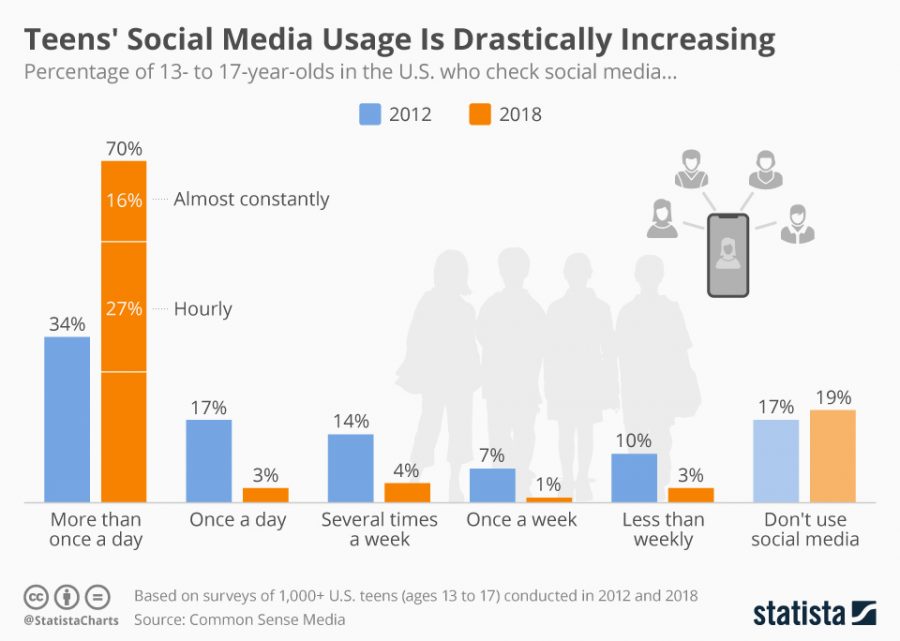Students Should Decrease Social Media Use
Social media is slowly deteriorating youth mental health and academics through internet addiction, lowering self-esteem, and spreading misinformation. Students should spend less time on electronics during the week to avoid these things to promote a healthier lifestyle.
The internet has become an addiction thanks to the overload of media and information one can access with a quick click of a button. Becoming addicted to the internet can lead to an intensified fear of missing out (FOMO), which is a desire to stay continually connected with what others are doing. FOMO and social anxiety are connected in many cases to internet addiction since trends and popular media online can bring one to feel left out if they do not participate.
Additionally, low self-esteem is often caused by the hyper fixation on physical attractiveness on social media platforms. Especially for children and teens, being exposed to countless platforms where looks and material wealth is the source of popularity has majorly decreased their self-esteem and has led to many feeling depressed. Many students have found themselves focused on artificial, materialistic popularity rather than focusing on their studies and their grades, which have suffered along with their mental health. Being so fixated on looks leads to frustration once one feels inferior to those they see online.
The spread of bad information, fake news, and the lack of media literacy in today’s youth is dangerous when so many hours a week are spent online. Students are exposed to fake news articles, false information on social media, and many other provocative and click-bait varieties of media platforms that have limited authority over what is posted. If students are not educated on how to distinguish valid information from invalid information, there is a higher chance they will fall for fake news or scams online.
Although social media is the entertainment hub of the internet and is helpful for staying on top of trends and current events, deception and misinformation are common throughout all platforms since many sites have convoluted rules to what can be posted and users have found ways to dodge them. Unless schools start teaching media literacy universally among all grades, students should avoid social media to steer clear from fake news.
Students should limit their social media use in order to prevent social anxiety, low self-esteem, and inaccurate information. Spending more time grounded in real life and surrounded by friends and family will not only improve mental health but allow time to focus on school.







